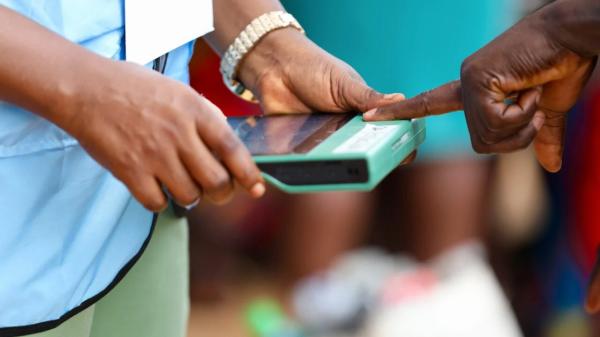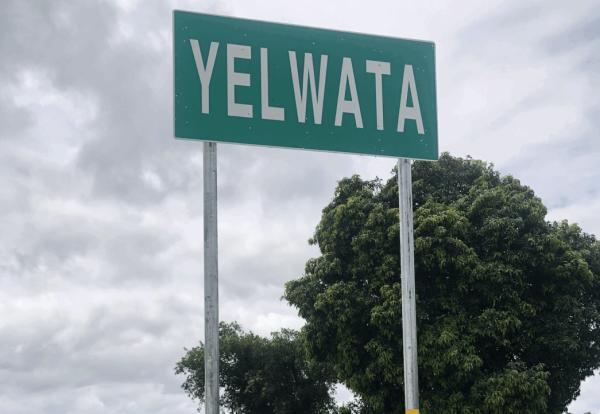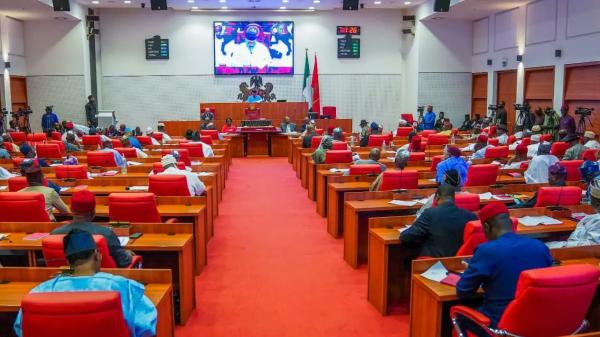
The Independent National Electoral Commission (INEC) has finally opened up formally on the failure to upload results on the viewing portal which remains one of the most controversial aspects of the 2023 presidential election.
Despite the Bimodal Voter Accreditation System (BVAS) working well on election day, uploading the presidential election results to the INEC result viewing portal (IREV) failed.
The IReV failure among other issues made opposition parties and some domestic as well as international election observers question the credibility of the polls.
But months after the exercise, the electoral body has now explained why uploading of results of the presidential election failed. The explanation is contained in parts of the official report of the 2023 elections, released by INEC on Friday ahead of the first anniversary of the election.
According to INEC, while the results for the House of Representatives and Senate were successfully uploaded, the presidential results failed to upload and instead “returned a HTTP server error response”.
INEC, however, stated that it later fixed the server error and that the first presidential election result sheet was successfully uploaded at 8.55 pm on the 25th of February 2023.
The electoral umpire noted that the glitch experienced in uploading the scanned images of PU presidential election result sheets on 25th February 2023 was due to the inherent complexity within the System, which it stated was difficult to anticipate and mitigate.
However, INEC insisted that the glitch in the upload of the presidential results sheets to iREV did not affect the credibility of the election.
The INEC report reads in part, “The 2023 General Election was generally peaceful and orderly nationwide. Most of the challenges encountered in the preelection, election and post-election periods were discussed in the preceding sections of this Report.
“However, a key challenge that impacted on the public perception of the election and elicited widespread commentary is the failure to upload Polling Unit results of the presidential election to the INEC Result Viewing (IReV) portal in real-time at the close of polls on Saturday 25th February 2023.
“To begin with, it is important to note that the IReV portal is one of the most significant innovations introduced by the Commission prior to the 2023 General Election to promote the integrity and transparency of the electoral process.
“As a public-facing website, the IReV portal shows the images of the original Polling Unit result sheets as recorded in Form EC8A. The operational methodology and the concept behind the upload of results to the IReV for public viewing is quite simple.
“At the end of polls, Polling Unit results (Form EC8As) are scanned and uploaded to the IReV by the Presiding Officer(s). These results are then available for viewing to the public and all stakeholders.
“The system, which was first deployed during Nasarawa Central State Constituency bye-election in August 2020 and tested in 105 subsequent elections, including three (3) of-cycle governorship elections, has tremendously improved public confidence in the integrity and transparency of the Commission’s result management process.
“The challenge of uploading the PU presidential election results on the IReV after the presidential and NASS elections on 25th February 2023 was unique. As voting ended across the country and POs began the process of uploading the images of the PU result sheets of the elections for the various constituencies around 4:00 pm, the Commission began to receive reports that attempts to upload presidential election result sheets were failing.
“Following these reports, the Commission immediately engaged with its field officials for details in order to understand and trace the origin, source, scale and magnitude of the problem across the result management ecosystem to devise appropriate solutions.
“In the troubleshooting process, it was established that there was no issue in uploading the PU result sheets of the Senate and House of Representatives elections through the Election Result Modules.
“However, there was a problem with uploading the presidential election results to the system. Attempts to upload the results were generating internal server errors, which refer to a significant impairment that usually originate from within an application due to problems relating to configuration, permissions, or failure to create or access application resources correctly.
“Further interrogation of the Election Result Modules indicated that the system is encountering an unexpected configuration problem in mapping the presidential election results uploaded into the system to the participation Polling Units.
“Due to the complex, sensitive and critical nature of the systems and the real potential for malicious cyberattacks, the Commission immediately put in place several strict security and audit control measures to prevent any unfettered or elevated access to the Result Upload System.
“In the process of resolving the challenge, it was discovered that the backend system of the IReV was able to query and detect the base States for uploading the PU result sheets based on the mapping of all Senatorial District and Federal Constituency elections to the respective 36 States of the Federation and the FCT as established in the database structure deployed within the system.
“In configuring and mapping the election results for the presidential and NASS elections, the Commission created Four Hundred and Seventy (470) election types consisting of one presidential constituency covering the entre country, 109 Senatorial Districts and 360 Federal Constituencies. Each Senatorial District and Federal Constituency election on the database was mapped to their respective States.
“However, the presidential election result is a single, countrywide constituency and therefore, does not belong to any one State.
“Consequently, while the uploads for the NASS elections succeeded as the application was able to identify the respective State and build the folder hierarchy for the results organization process for the election, attempts to upload the presidential election results sheets, which does not belong to or mapped to any State on the database, failed.
“Instead, it returned a HTTP server error response. This failure is attributable to the inability of the application to create and build a folder structure to organize the uploaded images of the result sheets of the presidential election. Having identified and established the source of the problem, the Commission quickly created and deployed “Hotfixes” which are software updates for fixing a bug or any vulnerabilities in a system.
“The deployed hotfixes eventually resolved the HTTP error on the system and the first presidential election result sheet was successfully uploaded at 8.55pm on the 25th of February 2023.
“After the problem with the upload was resolved, the Commission noticed a high
volume of uploads on the queue. All results that scanned but could not be uploaded due to the error were queued waiting to be automatically processed.
“Due to the large volume and high trafc from the queue, the system was running slower, even though it tried to scale up automatically to handle the unanticipated heavy trafc. The density of the trafc that slowed the uploads was one issue. Another was that the ofine queue requires the BVAS devices to be switchedon and connected to the internet for the upload.
“However, some of the POs had at the time left their PUs, and the devices had either been switched-of, or were out of internet coverage. Switched-of devices could not connect and upload the results sheets. The Commission had to reach out to the POs of affected areas to switch-on their systems and ensure internet connectivity for the uploads to continue. This accounted for the delay, with some of the results coming in the next day.
“By and large, the glitch experienced in uploading the scanned images of PU presidential election result sheets on 25th February 2023 was due to the inherent complexity within the System, which was difficult to anticipate and mitigate.
“Thereafter, the Commission has made improvements on the IReV and taken additional steps to build more resilience and undertook additional checks to ensure the stability and optimal operation and performance of the IReV portal.
“Additional quality assurance checks are now done to complement the end-to-end testing of the enter result upload ecosystem before the conduct of any election. However, the glitch in the upload of the presidential results sheets to iREV did not affect the credibility of the election. Agents of political parties and security agents were given copies of polling station results after they were announced in public.
“The results were also displayed at polling units for scrutiny by voters. So when they were eventually uploaded, it was easy to compare them with the copies displayed at polling centres and given to party agents and party
officials.
“The 2023 General Election produced the most diverse outcome in recent
Nigerian electoral history in terms of party representation in executive and legislative elections nationwide. Thus, four (4) political parties produced State Governors, seven (7) secured Senatorial seats, eight (8) won federal constituencies and nine (9) in State seats.
“A granular analysis of the results and performance of the leading parties across the country afirms this diversity. The performance of the four (4) leading political parties – APC, LP, PDP and NNPP – in the presidential election across the 6 geopolitcal zones in respect of the required 25% threshold to win a state in a presidential election is shown in Table 9.6 below.
“Clearly, across the zones, the performance of the four (4) leading parties shows the diversity and subtlety in the results, attesting to the integrity of both the process and outcome.”






















